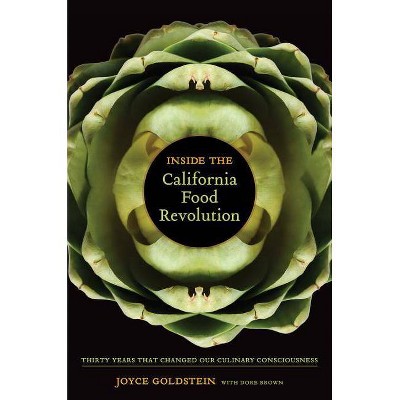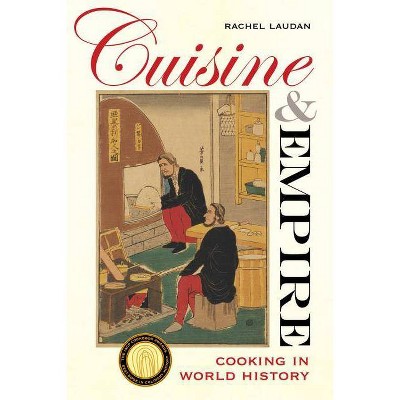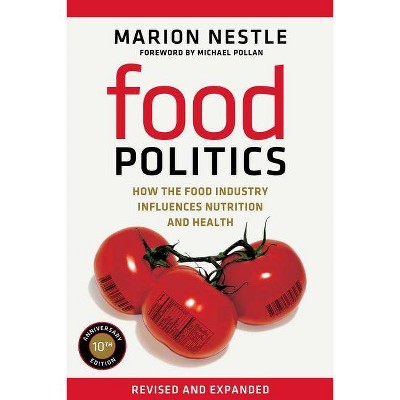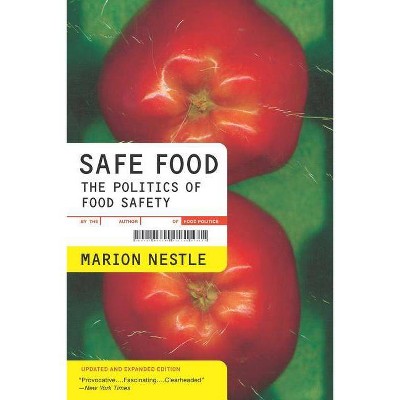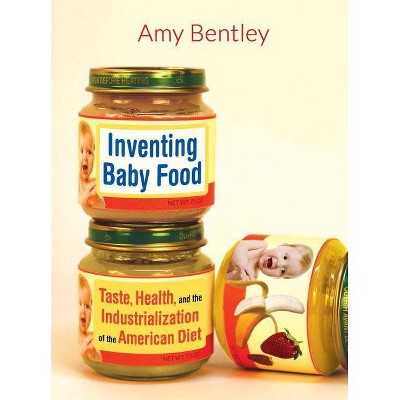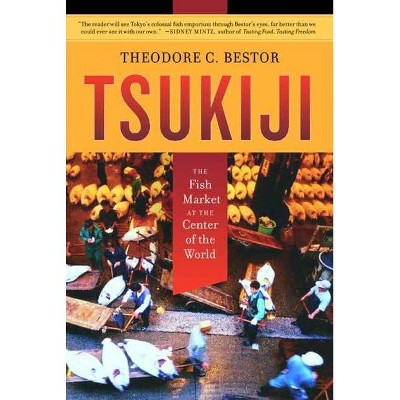Canned, 68 - (California Studies in Food and Culture) by Anna Zeide (Hardcover)
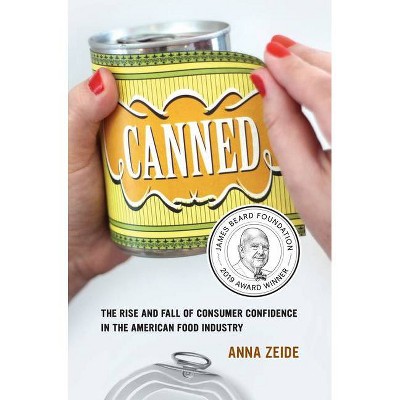
Similar Products
Products of same category from the store
AllProduct info
<p/><br></br><p><b> About the Book </b></p></br></br>"This book explores the earliest roots of the modern food industry, focusing on the development of the canning industry in the United States. Canning leaders leveraged the power of scientific expertise to create a market for canned food. Before the mid-twentieth century, in order to win consumer trust, canners adopted new technologies, cooperated with federal food regulation, sponsored agricultural and bacteriological research, and standardized food production. All of these moves helped to make canned food a staple of American pantries by the 1940s. As other industries entered the processed food landscape, and environmental and consumer critiques emerged, canners widened their scientific research base to more centrally incorporate marketing, advertising, and political strategy. In their increasing power, industry leaders were less willing to defer to governmental authority and more eager to directly control production and consumption. This study takes up the stories of six particular canned foods--condensed milk, peas, olives, tomatoes, tuna, and Campbell's soup--to understand the tools used by the food industry to build consumer confidence in a new way of eating. This modified diet not only changed the relationship between business and consumers, but also the relationships among Americans, farmers, universities, advertisers, and the natural environment."--Provided by publisher.<p/><br></br><p><b> Book Synopsis </b></p></br></br><b>2019 James Beard Foundation Book Award winner: Reference, History, and Scholarship</b><br /><br /> A century and a half ago, when the food industry was first taking root, few consumers trusted packaged foods. Americans had just begun to shift away from eating foods that they grew themselves or purchased from neighbors. With the advent of canning, consumers were introduced to foods produced by unknown hands and packed in corrodible metal that seemed to defy the laws of nature by resisting decay.<br /> <br /> Since that unpromising beginning, the American food supply has undergone a revolution, moving away from a system based on fresh, locally grown goods to one dominated by packaged foods. How did this come to be? How did we learn to trust that food preserved within an opaque can was safe and desirable to eat? Anna Zeide reveals the answers through the story of the canning industry, taking us on a journey to understand how food industry leaders leveraged the powers of science, marketing, and politics to win over a reluctant public, even as consumers resisted at every turn.<p/><br></br><p><b> From the Back Cover </b></p></br></br>"From the miracle of canned milk to the troubling presence of BPA in tomato soup, Anna Zeide's revealing history shows how the ever-increasing power of the processed food industry has profoundly shaped policies that affect what all Americans eat. This important book is useful food for thought for anyone interested in reforming our modern food system for the better."--Ann Vileisis, author of <i>Kitchen Literacy: How We Lost Knowledge of Where Food Comes From and Why We Need to Get It Back</i> <p/> "<i>Canned</i> serves up food history at its finest, but its implications extend far beyond the pantry. Zeide persuasively demonstrates how the canning industry's rise owed as much to skillful manipulation of science and politics as to technological savvy. Readily digestible by undergraduates, <i>Canned</i> should have a long shelf life."--Kendra Smith-Howard, author of <i>Pure and Modern Milk: An Environmental History since 1900</i> <p/><i>"</i>This is a nuanced, robust, elegantly written history. Zeide establishes canning's importance to consumers, food systems, and business history. It will stay in your mind long after you put it down."--Tracey Deutsch, author of <i>Building a Housewife's Paradise: Gender, Politics, and American Grocery Stores in the Twentieth Century</i> <p/> "<i>Canned</i> looks inside a seemingly unassuming device to reveal an unseen world of complex relations between people, food, technology, and their environments. With grace and clarity, Zeide has written a fascinating and important history showing how canning's 'food engineering, marketing, and politicking' led to the processed and packaged foods of today's kitchens."--Benjamin R. Cohen, author of <i>Notes from the Ground: Science, Soil, and Society in the American Countryside</i> <p/> "In <i>Canned</i>, Zeide treats us to a savory history of how canned food, on its journey from the farm to the supermarket shelf, reshaped American food and life. It is a story of changing agricultural production, marketing science, public health, consumer confidence, and food habits. After reading this book, you will never open a can of peas, tomatoes, or tuna and take for granted the history contained inside."--Gregg Mitman, author of <i>Breathing Space: How Allergies Shape Our Lives and Landscapes</i><p/><br></br><p><b> Review Quotes </b></p></br></br><br>"An important contribution."-- "Review of Agricultural, Food and Environmental Studies"<br><br>"An insightful and multifaceted investigation. . . . A rare find--an academic book that is genuinely entertaining to read."-- "Gastronomica"<br><br>"Zeide's account goes well beyond canned food to include many other aspects of the larger food system and consumer activism more generally . . . She uses a wide range of primary and secondary sources, and demonstrates familiarity with a broad literature on the history of food and consumption. In this way, the book speaks to an interdisciplinary audience with ease."-- "American Historical Review"<br><br>"Zeide's thoroughly researched, comprehensive history is a necessary addition to the collections of policy-makers, activists, and anyone interested in reforming the modern food system of the United States."-- "Environmental History"<br><p/><br></br><p><b> About the Author </b></p></br></br><b>Anna Zeide</b> is Assistant Professor of Professional Practice at Oklahoma State University, where her research, teaching, and community activism focus on food and food systems.
Price History
Cheapest price in the interval: 34.95 on November 8, 2021
Most expensive price in the interval: 34.95 on December 20, 2021
Price Archive shows prices from various stores, lets you see history and find the cheapest. There is no actual sale on the website. For all support, inquiry and suggestion messages communication@pricearchive.us
